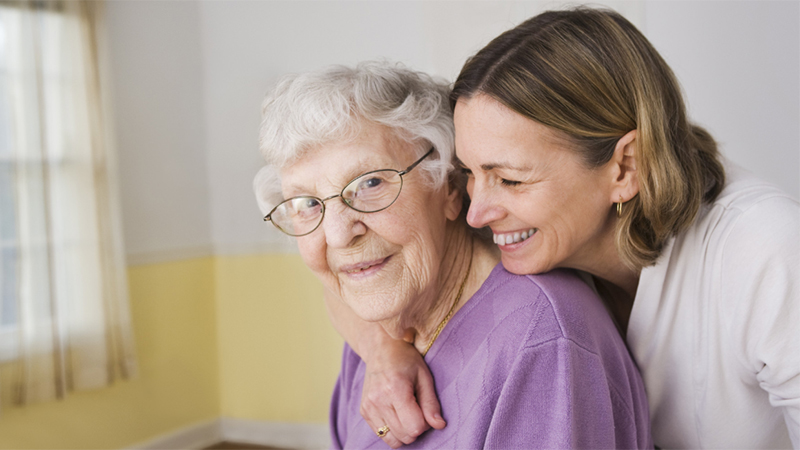How to Know When It Is Time to Get Help Caring for Your Elderly Parents
No one likes to think about it, but there may come a time when you find yourself in a situation when one of your elderly parents, grandparents or in-laws becomes ill or gets injured and needs care 24 hours a day. Finding yourself in such a situation, especially if you are already balancing a busy career with caring for young children, can be overwhelming. The demands of caring for an elderly parent or relative who is ill can be full time, putting strain on your marriage and relationships with your children, and causing conflict at your job. It can also take a toll on your personal health and wellbeing, leaving you little time to work out, run errands, visit friends or take care of your other needs.

Luckily, there is help available for busy adults who find themselves in this type of situation. In-home care agencies provide nurses and home health aids who can take care of your sick or injured parent while you are at work or taking care of your own family’s needs.
The tips below can help you decide when it is time to hire an in-home care service to help you care for your elderly parent or relative.
Your Parent or Relative Is Unable to Take of Their Own Basic Needs
If your parent or relative becomes so ill or incapacitated that he or she is no longer able to take care of their own basic needs, such as preparing food and feeding themselves, keeping their home clean, or doing basic chores such as laundry and washing dishes, it might be time to call an in-home care service.
This is especially important if you notice that your parent is no longer able to take care of his or her personal hygiene or falls or has another type of accident while bathing.
A representative from Rosewood Home Care, an in-home care agency in Atlanta, Georgia, says, “We provide a wide range of personal care services to seniors and other persons who may need help with personal hygiene for one reason or another. Good personal hygiene is not only important for health reasons but social ones too. Looking good and feeling presentable boosts self-confidence and makes people happier.Poor personal hygiene puts seniors at a high risk for infections and illnesses. Maintaining good hygiene is a must for seniors who want to age at home and remain in control of their lives.”
You Begin to Recognize Signs of Caregiver Burn Out
If you find that you are helping your elderly parent or relative with basic tasks like shopping for groceries, cleaning their home, doing laundry, transportation to and from doctor’s appointments, and/or organizing their prescriptions four or more days a week, it’s time to make an honest assessment about how all the extra work and time spent away from your kids, spouse and job are affecting you.
Caring for a senior parent can be demanding emotionally and physically. If you find that you are having trouble sleeping, drinking more alcohol than usual, are frequently calling in sick to work, or are missing appointments for yourself or your kids often, it might be time to acknowledge that you are getting burned out. This is especially true if any of these factors is causing conflict at home or at work.
If you begin to notice the signs of personal burn out, it is probably time to consider hiring an in-home care service to help with the workload. If the amount of daily care your parent or relative requires has gotten to be more than you can handle, or the amount of time you are spending away from your kids and spouse is causing you to exhibit signs of anxiety or depression, hiring professional in-home care could be the best solution for everyone.
How to Talk to Your Parent or Relative About In-Home Care
If you’ve noticed signs of the problems above, it’s best to talk to your parent or relative about in-home care as soon as you can. Discuss with your parent the problems you have noticed them having and tell them about the personal challenges you are facing. Let them know that you care about them and their wellbeing, but that you need to take care of your own family and yourself as well.
Because many older adults are very concerned about maintaining their independence,try to emphasize the advantages that in-home care will have for both of you.Saying you could use some “extra help” is a much better way to approach the subject than focusing on your parent’s health issues or the trouble they are having taking care of their basic needs.



